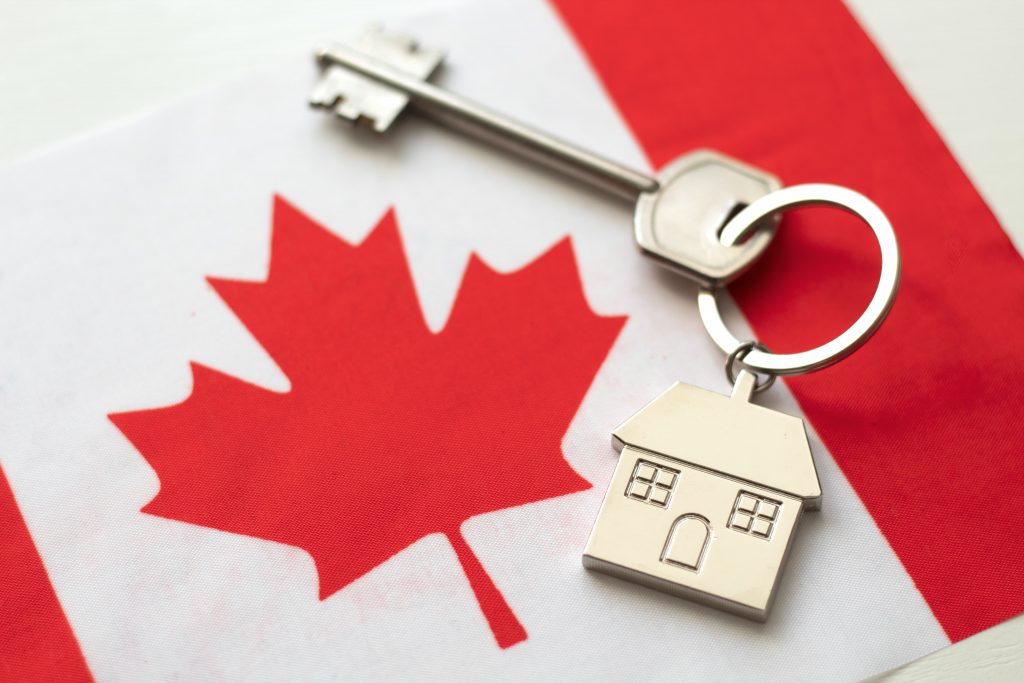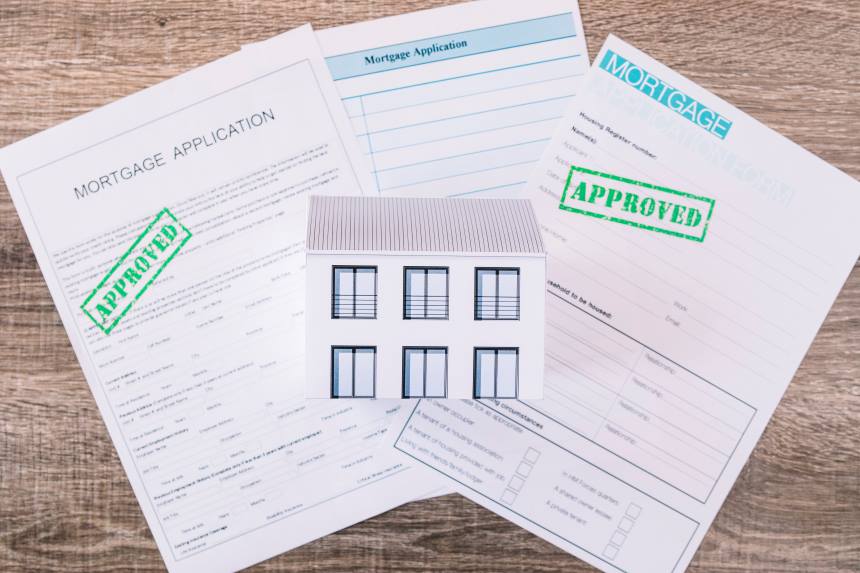Immigrant Special – Newcomers Mortgage to Help You Buy a Home
Nothing makes a new country feel like home until you buy, well, your own home!
There is a warmth in your heart when you step into a place that is all your own (let’s put aside the mortgage for a little time), where you can let your senses and tastes take over. Bask in the blissful peace of mind, the little accents that evoke memories, and definitely, the solid feel of putting down roots.
In the hustle of settling down in a new life, buying a property may not be the first thing that comes to mind. And, as a newcomer, you can feel out of your depth unless you get the right information and guidance.
Mortgages, pre-approvals, financial considerations such as down payment requirements, credit reports and insurance – all these are part and parcel of the process. Real estate is a big-ticket investment and requires you to understand the local housing market, including rules, regulations, and financial considerations.
Everything is not doom and gloom. In fact, there are several initiatives and programs available for first-time home buyers in Canada. And one type of mortgage that stands out for its appeal to new immigrants is the Newcomers Mortgage.
This guide will give you an overview of the Canadian real estate market, the impact of immigration on housing demand, and the mortgage options available for you. By the end of this article, you’ll know how to secure a newcomer mortgage and buy your home in Canada.

Table of Content
Canadian Real Estate: An Overview
In June 2024, an average home in Greater Vancouver cost $1,349,985 – a price out of reach for many wannabe homebuyers. Toronto and Vancouver lead the pack in terms of expensive real estate, but other regions are catching up, too. For instance, a detached home in Hamilton will set you back by about $923k.
The good news, according to a recent CMHC survey, is that the majority (79%) of Canadian adults surveyed believe real estate is a good long-term financial investment. But the kicker is that it takes an average of 4.2 years for consumers to save for a down payment.
Many continue to have concerns about buying a home, and the interest rate is just another nail in the coffin. The Canadian economy has experienced a slowdown in recent years, with the unemployment rate climbing above 6%.

Newcomers and Their Impact on Housing Demand
The Canadian government has always been proactive in welcoming newcomers to the country.
In fact, with Canada being one of the most popular countries for immigrants, the actual number has exceeded the government’s Immigration Levels Plan 2023-2025. The country welcomed 471,771 new residents in 2023.
Traditionally, urban centres like Toronto, Mississauga, Brampton, Vancouver, Edmonton, and Calgary have borne the brunt of migrants. In recent years, however, the influx of newcomers has spread to smaller towns and metro-adjacent regions such as Kitchener-Waterloo-Cambridge, Surrey, Abbotsford and Windsor, to name a few.
With demand outpacing supply, especially family-sized condos in Mississauga, affordability has become an issue, particularly in areas where new Canadians tend to settle.
Newcomers should look beyond traditional housing options, such as co-ownership, rental properties, or affordable homes outside the urban core. In addition, they should stay informed about any government housing initiatives or programs that they may qualify for.

Mortgages: Newcomer-Friendly Options
So, what does this mean for you? How do you get the financial support to buy a home?
Fortunately, most of the country’s banks and lending institutions offer mortgages tailored to newcomers. There may be a few variations, but generally, the basic terms, eligibility, and provisions remain similar and aim to provide an accessible path to homeownership.
CMHC Newcomers Program
One of the most popular mortgage options is the CMHC Newcomers Program.
This Canada Mortgage and Housing Corporation (CMHC) program is designed to improve housing choices for newcomers to Canada and caters to both permanent and non-permanent residents.
Eligibility Requirements
To be eligible for the CMHC Newcomers Program, you must meet the following criteria:
- Have immigrated to Canada within the last 5 years
- Have legal status in Canada (permanent resident or non-permanent resident with a work permit)
- Have been employed full-time in Canada for at least 3 months
- Have a down payment of at least 5%
- Meet the qualification ratios for income and debt
Establishing Creditworthiness
For newcomers without a Canadian credit history, the CMHC may consider alternative methods to prove creditworthiness, such as:
- International credit report
- Letter of reference from the borrower’s financial institution in their country of origin
- Rental payment history or utility bill payments
- Loan-to-Value (LTV) Ratios and Down Payments
As with other Canadian mortgages, mortgage default insurance is required for mortgages with a down payment of less than 20%. The CMHC, Sagen, and Canada Guaranty cover newcomer mortgages in Canada.
Newcomer Mortgages from Other Canadian Banks
Several central Canadian banks also offer specialized mortgage products for newcomers. These include:
RBC Mortgages for Newcomers to Canada
- Canadian credit history is not required
- Down payment can be as low as 5%, but mortgage default insurance may be required
- Amortization period up to 25 years (with less than 20% down payment) or up to 30 years (with 20% or more down payment)
Scotiabank StartRight Mortgage Program
- Scotiabank may demand a larger down payment than the minimum down payment of 5%
- Mortgage default insurance may be required if the down payment is less than 35%
- This program is meant for permanent residents who have been in Canada for three years or less and temporary residents such as international students or foreign workers
TD Mortgages for Newcomers
- Canadian credit history is not required if you are a permanent resident and have been in Canada for 5 years or less
- Proof of residency, such as a permanent resident card or temporary permit, is mandatory
CIBC Mortgages for Newcomers
CIBC offers multiple mortgages for newcomers: the Newcomer to Canada Program Mortgage, the Newcomer to Canada PLUS Program Mortgage, and the Foreign Worker Program Mortgage
Notably, the programs do not require a Canadian credit history for permanent residents, Canadian citizens returning to Canada, or temporary residents with a work permit.
BMO Newcomers to Canada Mortgage
If you do not have any existing credit history, BMO’s NewStart Program may be the right fit for you – they help newcomers build their Canadian credit history with a credit card and offer a 130-day rate guarantee, giving you time to find a home and compare mortgage rates.
HSBC New to Canada Mortgage
HSBC does not insist on Canadian credit history, as they consider your foreign credit history. The program also allows you to pre-open a Canadian bank account before you arrive in the country.
Desjardins Newcomers to Canada Package
Similar to BMO, Desjardins also lets you start building your credit score quickly with a free credit card without needing any credit history. The bank also offers competitive rates and a range of mortgages.

Mortgage Application Process
Getting approved for a newcomer mortgage in Canada is similar to what other homebuyers go through. The key steps remain the same:
Start by building a Canadian credit history.
The next question is how much you can afford to spend on a home. Use online mortgage calculators to help estimate your mortgage affordability. And then, you get a pre-approved mortgage.
Getting a mortgage pre-approval gives you a better idea of the maximum amount you can borrow, along with the interest rate and monthly payments. This information is crucial when you start searching for a home.
Once you have your budget and pre-approved mortgage in place, consult a local real estate agent to help you find a suitable property and make an offer. This is when the actual mortgage process comes into play – however, if you have a pre-approved mortgage, it is an easier journey.
Overcoming Challenges
You should have a fair idea of the process and options now. Stay with us as we point out a few pitfalls on the homebuying journey so that you recognize them and surge ahead.
Credit History
Lack of a Canadian credit history, AKA a track record of responsible financial management in the country, is a challenge many newcomers face.
Look at how you can leverage alternative methods, such as using international credit reports, providing letters of reference from your home country’s banks, and building a history of on-time utility and rental payments.
Down Payment Requirements
If the borrower does not have a Canadian credit history, the minimum down payment can be as high as 35%. This can be a severe burden, especially for those who have just arrived in the country.
To mitigate this, apart from saving as much as possible for a down payment, newcomers can consider financial gifts from family. It is also a good idea to check whether they can avail of first-time homebuyer incentives.
Navigating the Process
For a newcomer, the country’s financial systems are unfamiliar and can prove to be complex. They may be asked to furnish additional documentation, such as proof of residency or employment.
To overcome this challenge, newcomers should consult a mortgage professional who can guide them and ensure that all necessary documentation and requirements are duly met.
Welcome to Canada!
You have taken the giant step to moving to a new country. Congratulations!
Plan and save for your home in this beautiful country. The housing market has plenty of opportunities for newcomers, and by understanding the unique mortgage options and the home-buying process, you can overcome the hurdles and achieve your dreams.
This article lists some of the mortgage options tailored for newcomers—however, we recommend that you research and familiarise yourself with the specifics, including eligibility, lending policies, etc. Generally speaking, newcomers can access more lenient eligibility requirements, lower down payment options, and alternative methods of establishing creditworthiness.
Do not forget that homeownership is a milestone in your new life –reach out for the right guidance and support and you can turn your dream of owning a home in Canada into a reality.
